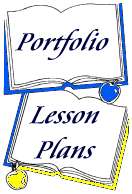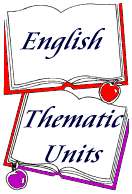![]()
|

Testing Your Thesis or Question
Thesis
Some defining features of a thesis:
-
for most student work, it's a one- or two- sentence statement that explicitly outlines the purpose or point of your paper. A thesis is to a paper what a topic sentence is to a paragraph
-
it should point toward the development or course of argument the reader can expect your argument to take, but does not have to specifically include 'three supporting points" as you may have once learned
-
because the rest of the paper will support or back up your thesis, a thesis is normally placed at or near the end of the introductory paragraph.
-
it is an assertion that a reasonable person could disagree with if you only gave the thesis and no other evidence. It is not a fact or casual observation; it must beg to be proved. And someone should be able to theoretically argue against it (how successfully will depend of course on how persuasive you are)
-
it takes a side on a topic rather than simply announcing that the paper is about a topic (the title should have already told your reader your topic). Don't tell a reader about something; tell them what about something. Answer the questions "how?" or "why?"
-
it is sufficiently narrow and specific that your supporting points are necessary and sufficient, not arbitrary; paper length and number of supporting points are good guides here
-
it argues one main point and doesn't squeeze three different theses for three different papers into one sentence
-
most importantly, it passes The "So What?" Test
Practice recognizing the above points with the explanations and examples at the following Web pages:
- The Statement of your Thesis out of the University of Victoria Writer's Guide
- Exercises on Choosing the Best Thesis from the folks at Empire State College Writer's Complex plus the explanatory part on Developing a Research Thesis
- The Thesis Statement plus an interactive exercise from the University of Richmond's Writer's Web
Research Question
There isn't as much to say about research questions as thesis statements
because the former are much more straightforward. A research question is needed
because your broad topic, given out in the assignment or devised on your own, is
too abstract to give you any focus for your upcoming research. The key is
refining.
For example, say you're taking a Psychology course on Issues in Psychotherapy and you have just finished a unit on different "psychotherapeutic techniques." To simply make that topic a question as in 'What are the different psychotherapeutic techniques?' would be too huge an endeavor, not to mention the fact that it would probably regurgitate the course's material rather than explore new ground.
Why not instead refine your topic to one technique and frame a question that aims to explore that technique's efficacy? Exploring "Is hypnosis (or primal screaming, or group therapy or whatever) a valuable strategy to use in psychotherapy?" would do more justice to the assignment. And it would be easier to look for direct evidence in that area.
Test: If punching keywords into a library catalogue terminal pops up items in the hundreds or thousands, you are typing in a topic, not parts of a research question.
Here are some exercises you can do from the Empire State College Writer's Complex:




